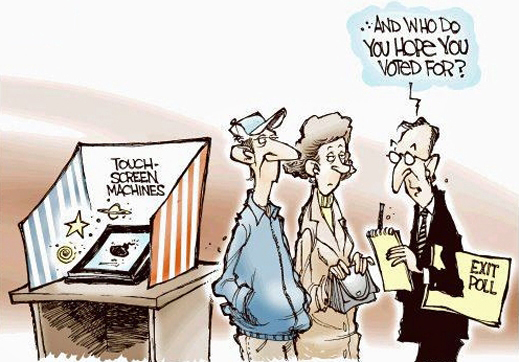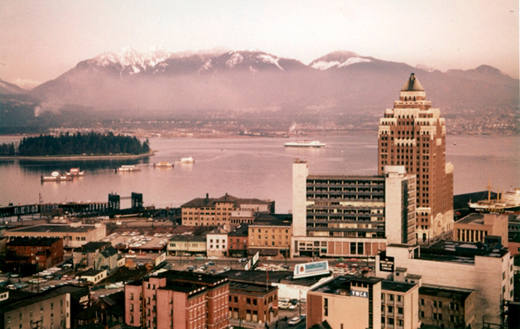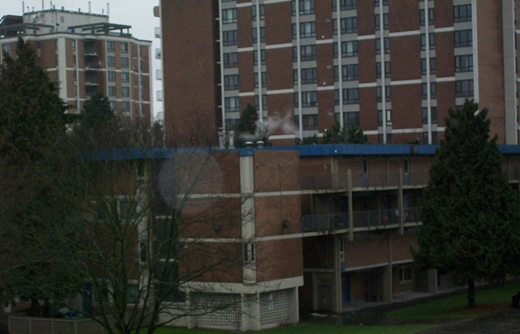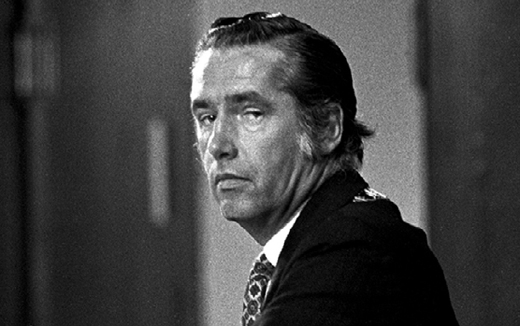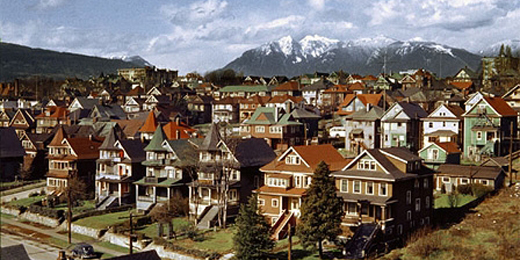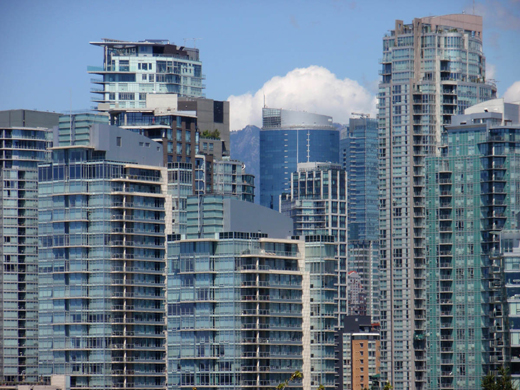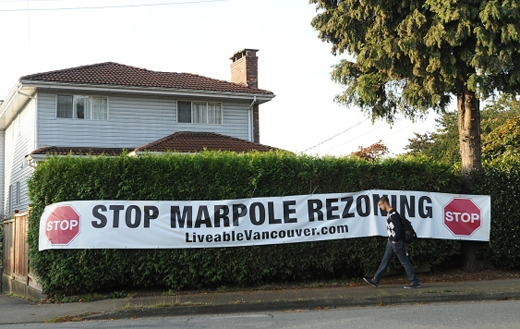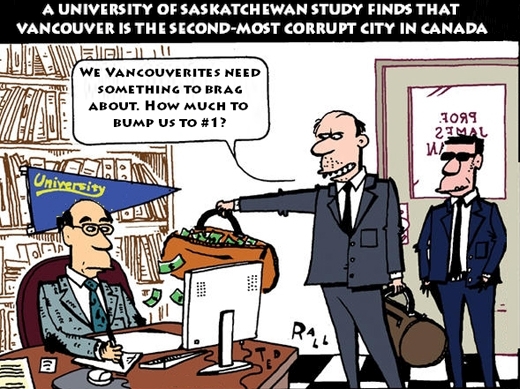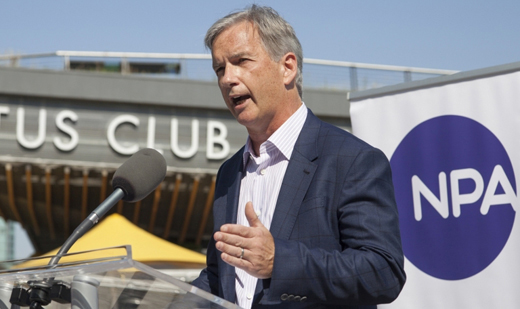
There’s a coalition of progressive voters coalescing around Kirk LaPointe, the socially progressive Non-Partisan Association candidate for mayor.
For VanRamblings, the most surprising aspect of the 33rd annual Vancouver International Film Festival arises from the dozens of approaches by filmgoers that have been made to us by community activists working across every neighbourhood in the city — folks with whom VanRamblings has worked on countless NDP, COPE and Vision Vancouver electoral campaigns, as well as on community activist projects too numerous to mention — who have, chapter and verse, detailed the egregious anti-parks and recreation, neighbourhood destroying, pro-development, covert, and pharisaic decision-making that has gone on at City Hall and Park Board this past six years under an execrable Vision Vancouver civic administration.
Make no mistake, a well-organized Anyone But Vision movement has begun to form, and almost all of those with whom VanRamblings has engaged are what Andy Yan, a planner and public data analyst with Bing Thom Architects, refers to as engaged voters — those citizens who live along the golden horseshoe, the crescent of big-turnout polls that extends from the Commercial Drive / Grandview Woodland area, through Mount Pleasant to Fairview and Kitsilano, the city’s inner ring of neighbourhoods.
Andy Yan may well be right, but if VanRamblings were to take into account the dozens of infuriated telephone callers, e-mails, texts and direct social media messages we receive each day, dissatisfaction with Vision Vancouver would appear to extend far beyond the golden horseshoe, and well into both the LGBTQ+ and Chinese communities, both of which latter voting groups have indicated they’ll leave Vision Vancouver in droves this election, as they head back to the warming embrace of the Non-Partisan Association.
And let us not forget, either, the rampant and vocal dissatisfaction that has emerged this last term with Vision Vancouver in the Hastings-Sunrise, Dunbar, Killarney, West End, Yaletown and Marpole neighbourhoods.
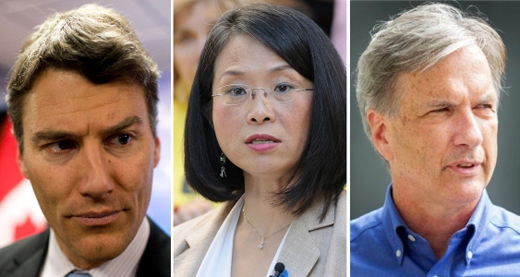
Among progressive voters, the move to support Kirk LaPointe emerges not out of a lack of support for COPE mayoral candidate Meena Wong, but rather from the realpolitik that Ms. Wong cannot defeat Gregor Robertson.
The progressive voters who’ve contacted VanRamblings by phone and social media, and stopped us on the streets and in coffee shops by the hundreds these past four months want Gregor Robertson and his ne’er-do-well band of Vision Vancouver colleagues gone from the Vancouver civic scene — in Kirk LaPointe, these progressive voters have identified a viable, socially progressive, thinks for himself (one of the salutary comments we hear often) and electable alternative for the mayor’s chair, and a candidacy around whom a growing coalition of progressive voters has formed, an under-the-radar bloc of community-oriented activists who are working in neighbourhoods across our city to ensure that Kirk LaPointe becomes Vancouver’s new mayor late in the evening this upcoming November 15th.
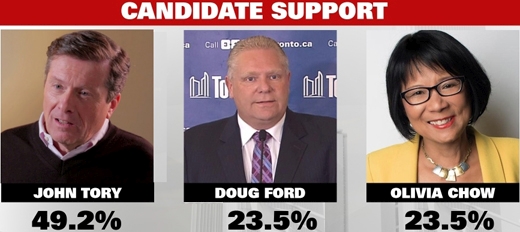
In Toronto, a burgeoning alliance of voters has formed around the mayoralty candidacy of former Ontario Progressive Conservative leader, the once beleaguered John Tory, whose current 49.2% standing in the polls is both testament to his middle-of-the-road, socially liberal candidacy, and more than double that of challengers Doug Ford and Olivia Chow. Make no mistake, the vast majority of Toronto voters want the Ford family out of Metro Toronto civic politics, and everyone from provincial Liberal cabinet ministers to longtime members of the provincial NDP have come out in groundswell support for the socially liberal, fiscally conservative John Tory.
A similar dynamic would appear to be emerging in Vancouver.
In Kirk LaPointe, progressive and engaged voters see a Red Tory, who just as is the case with the seems-certain-to-win Toronto mayoralty candidate John Tory, offers socially liberal programmes, fiscally sound city management, and open and transparent municipal governance.
Imagine, in John Tory and Kirk LaPointe, the two largest English-language speaking cities in Canada could, and might very well, have socially progressive mayors in place, leaders who could actually engage in a respectful dialogue with senior levels of government (unlike you know who) to achieve much that would be beneficial to the concerns, and wants and needs of their respective electorate — leaving open the possibility, as well, that such socially progressive candidate wins could serve to redefine the concept of conservatism in Canada, consigning Stephen Harper’s mean-spirited concept of conservatism rightfully to the dustbin of history.
Kirk LaPointe and John Tory as latter day incarnations of Bill Davis.
There’s even a rumour extant that former premier, and Vancouver mayor, Mike Harcourt will endorse Kirk LaPointe late in this electoral campaign.
Rumour has it, too, that independent mayoral candidate Bob Kasting, and the startup Vancouver Cedar party, will also endorse Mr. LaPointe’s candidacy for mayor late in the current Vancouver municipal election cycle.
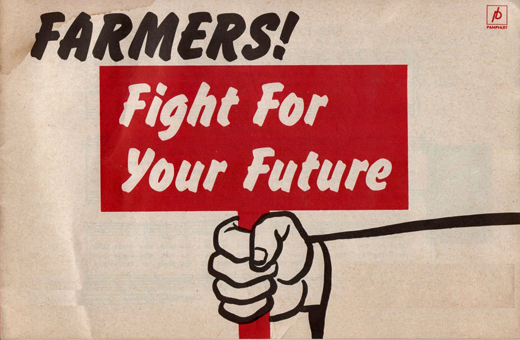
Most engaged voters know that the roots of the Progressive Conservative party emerged from the post WWI United Farmers movement, a radical grassroots, socialist amalgamation whose supporters founded the Progressive Party of Canada (what we refer to today as the — albeit, almost extinct — Red Tories within the Stephen Harper-led Conservative party), before amalgamating with the Conservative party proper in the early 1940s.
Progressive voters — traditional NDP voters — have a long history of voting strategically to support socially liberal, Progressive Conservative candidates whose grassroots ideals reflect those of the more left-leaning NDP.
In 2014, that would appear to be what we have in the Non-Partisan Association — a small “c” conservative municipal party that reflects the ideals of a broad cross-section of the voting electorate, a made-in-Vancouver civic political party comprised of honest, hard-working and humble servants of the public interest whose electoral platform consists of:
- Working with senior levels of government to develop affordable, and social housing, programmes to meet the broadest cross-section of the needs of the voting electorate in Vancouver, and their families;
- As Vancouver’s population ages, we have in Kirk LaPointe, a mayoralty candidate who is committed to investing in affordable housing and amenities for seniors citizens;
- A socially progressive Non-Partisan Association mayoral candidate who grew up in rank poverty (a far cry from the silver-spoon-in-his-mouth mayoral incumbent), who has committed that with an NPA administration at Vancouver City Hall no child will go hungry, and more — that 365 days a year no child in our city will go hungry.
What Kirk LaPointe hasn’t said is that he will work with senior levels of government to ensure that child poverty in Canada’s third largest city will become a grievous and deplorable feature of Vancouver’s past — make no mistake, Kirk LaPointe is committed to this latter goal, but has not made an announcement because he can’t promise he’ll deliver on it his first term in office. Unlike our incumbent mayor, the principled and socially conscious Kirk LaPointe, the mayoral candidate with the Non-Partisan Association, does not overpromise and under-deliver;
- Talking about overpromising and under-delivering, Gregor Robertson and Vision Vancouver have promised us free wi-fi across the city since before they were first elected. Kirk LaPointe has promised the same thing, beginning on Vancouver’s eastside, he says. The difference between the two promises? Kirk LaPointe will deliver on his promise, while you’ll be waiting til the cows come home before Gregor Robertson follows through on yet another empty Vision campaign promise;
- A municipal party in the NPA that will not increase property taxes in their first year in power, as the new civic administration conducts an audit of Vancouver’s likely to be woeful financial affairs;
- A party that does not practice the faux greenwashing of Vision Vancouver, but a municipal party that is committed to the health of its citizens, and is a vocal opponent of Vancouver’s waste to energy plans, as well as Metro Vancouver’s plan for a garbage incinerator and Vancouver’s current plan for a gasification plant at the city’s garbage transfer station. The NPA will instead concentrate on ways to increase reducing, reusing and recycling the City’s solid waste.
- A mayoral candidate in Kirk LaPointe who will end Vision Vancouver’s game-playing and get the long-awaited Southeast Vancouver Seniors Centre facility built; will create an open and transparent City Hall Lobbyist Registry, as well as the first ever Office of the Ombudsperson in Vancouver, an office that would seek to resolve citizens’ disputes with the City fairly and without necessitating resort to the courts, in the process returning trust and transparency to City Hall.
Here’s a link to information on the Ombudsman Office, in Toronto;
Yes, there is something of the aspect of the merry-go-round in covering civic politics. It has oft been said, though, that a day in politics can seem like a lifetime, so changeable is the political dynamic from day-to-day.
While it is true that the party polling conducted early last week by Vision Vancouver and the Non-Partisan Association does not, as yet, reflect the growing groundswell of support for Kirk LaPointe’s “Anybody But Gregor” candidacy, perhaps that’s more a function of polling that was done outside of the golden horseshoe. VanRamblings has consulted widely in Grandview Woodland, Mount Pleasant, Fairview and Kitsilano, and we can tell you that for weeks now organizing drives have been afoot to dampen / hinder / annihilate the vote for Vision Vancouver; it’s just a matter of time before the polls reflect a much-increased support for the candidacy of Kirk LaPointe, whose electoral coattails could very well permanently dislodge a damnable Vision Vancouver administration from City Hall and Park Board.

In August, VanRamblings published a column, the headline of which read
“Mayor Gregor Robertson Virtually Unbeatable.” At the time, we had no firm idea that our concerns respecting Vision Vancouver’s governance of our city was so widely shared. Seems that the mayoral dynamic has changed a month and half later. VanRamblings may have to issue a mea culpa yet.
